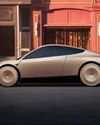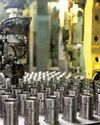
For those of us from non-tech industries, ChatGPT’s introduction a few months ago was the biggest trigger for our AIspeak.
One of the common myths that AI is simply just automation + data, probably trivialises a field that has rich history, a rapidly evolving present, and a future with impossible possibilities and plausibilities. The concept of artificial intelligence has been around for over half a century. It originated in the 1950s when pioneers like Alan Turing and John McCarthy began exploring the idea of creating machines that could simulate human intelligence.
Early AI systems were rule-based and had limited capabilities, but they sparked a fascination with the potential of machines to mimic human cognition. Over the ensuing decades, AI underwent significant advancements. Expert systems, neural networks, and machine learning algorithms emerged, each contributing to the field’s growth. Artificial Intelligence started to excel in areas like game playing, language processing, and data analysis. However, its widespread adoption remained limited due to computational constraints and the absence of vast datasets.
The turning point came in recent years with the explosion of data and computing power. The availability of vast amounts of data, combined with more power ful processors and improved algorithms, allowed AI systems to surpass human capabilities in tasks such as image recognition and natural language understanding. This data-centric approach has indeed been a crucial component of AI’s recent success.
”Is AI just Automation + Data? That’s like saying humans are just bones + flesh. Sure, it’s an essential part, but there’s a whole lot of magic happening in the brain circuits!”
This story is from the {{IssueName}} edition of {{MagazineName}}.
Start your 7-day Magzter GOLD free trial to access thousands of curated premium stories, and 9,000+ magazines and newspapers.
Already a subscriber ? Sign In
This story is from the {{IssueName}} edition of {{MagazineName}}.
Start your 7-day Magzter GOLD free trial to access thousands of curated premium stories, and 9,000+ magazines and newspapers.
Already a subscriber? Sign In

MEMORIES & IMPRESSIONS
Ratan Tata was an exceptional human being. He was a visionary leader, esteemed industrialist, and a humanitarian, who left an indelible mark on India and the world.

The Robotaxi Market
The robotaxi market is shaping up to be a high-stakes battleground as tech giants and automakers race to transform urban mobility.

And the Nobel Prize Goes to AI
The recent Nobel Prize T awards to AI pioneers affiliated with Google have sparked a broader conversation about Big Tech's influence on research and the limitations of traditional prize categories.

Ola Electrified
Once considered a trailblazer in India’s electric vehicle (EV) ecosystem, Bhavish Aggarwal’s Ola Electric now faces a major accountability crisis.

Sharp Slide in Industrial Output on Eve of Deepavali
India’s index of industrial production (IIP) saw a sharp reversal in August, contracting by 0.1 per cent, in stark contrast to the 4.7 per cent growth in July, mostly because of significant contractions in mining and electricity generation.

Heralding the Solar Era with Sustainable Electrification
RAJEEV KASHYAP on the economics of solar power, the hurdles in scaling it, and much more

A WELL-GREASED MACHINE
The OmniBook X14 laptop runs on first-generation Snapdragon X Elite, which bets big on Al-enabled productivity and battery life, but falls short when it comes to overall experience, says Deep Majumdar

DO NOT LETA HEALTH CRISIS RUIN YOUR FINANCIAL HEALTH
For a family of four living in a metro, it is recommended to opt for a family floater health insurance plan with a sum insured of at least Rs 15-20 lakh

Disruption Ahead: Beyond Organisation Charts and Structures
ALBERT EINSTEIN FAMOUSLY said, “We cannot solve our problems with the same thinking we used when we created them.

Dr. Rahul Shivajirao Kadam: A Visionary Leader Blending Sustainability, Innovation, And Social Empowerment
We are on the stage of global warming, and these technologies not only help prevent further damage but also leave behind a better environment for future generations.